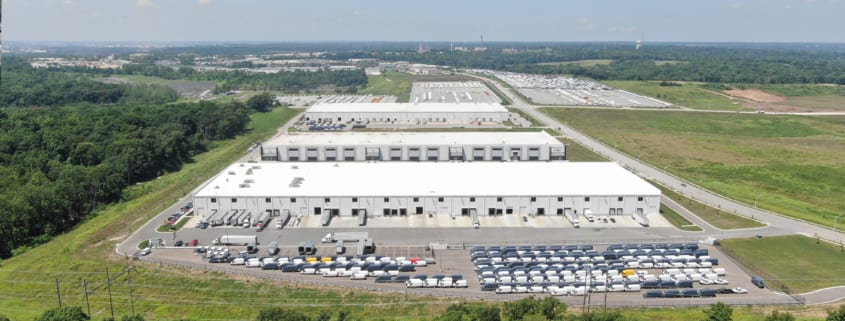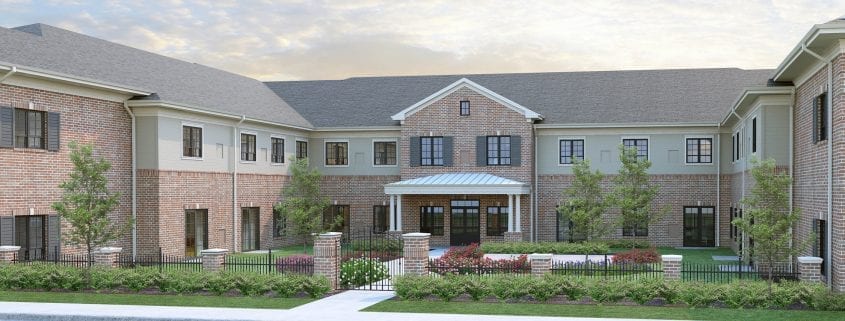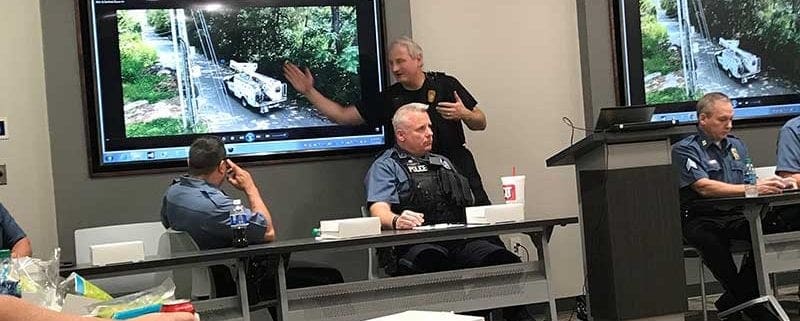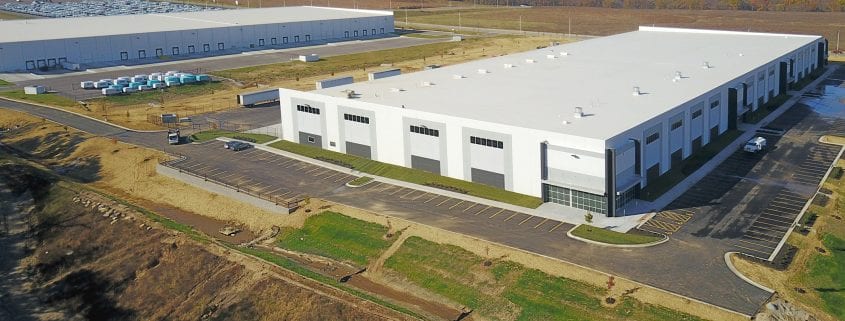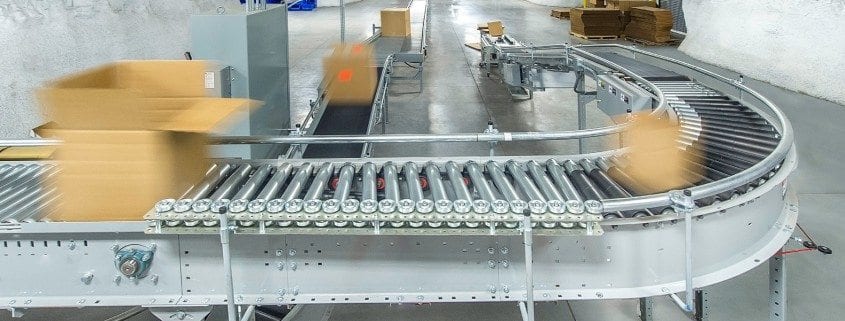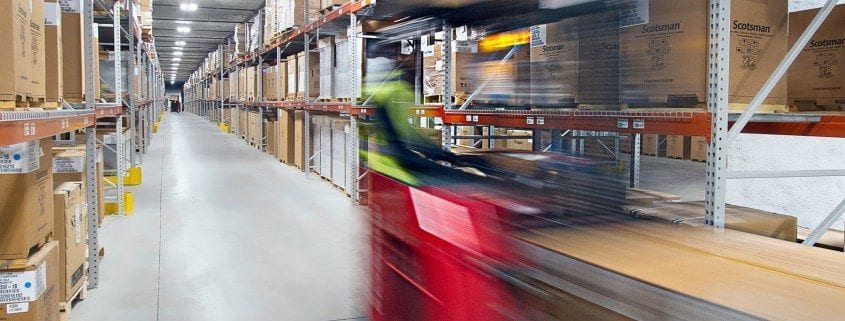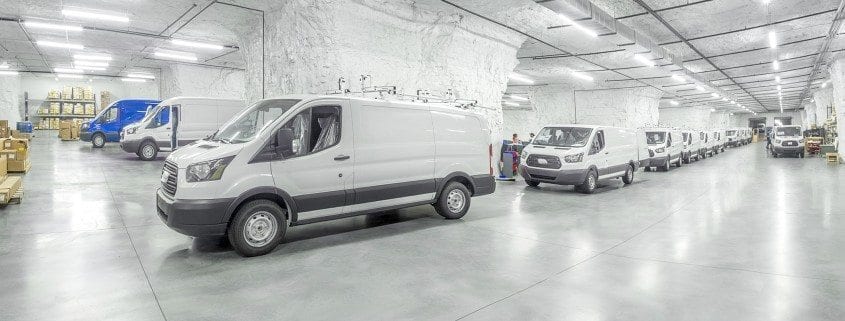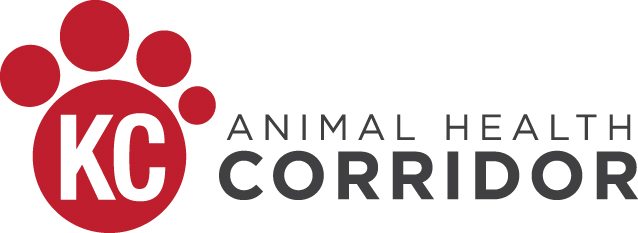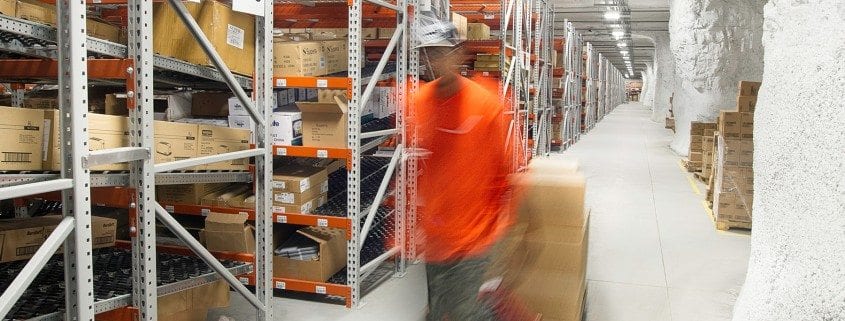Tag Archive for: hunt midwest
Hunt Midwest Invests in Community Awareness and Crime Prevention
David Strickland – Vice President of Kenton Brothers
As one of the largest area developers and property managers, Hunt Midwest manages commercial, retail, industrial and residential properties all over the Kansas City Area. They are also the owner and developer of SubTropolis, the world’s largest underground business complex.
Hunt Midwest supports their businesses and the whole Kansas City Metro through hosting meetings to allow for collaborative discussion on how crime can be prevented. In July, I attended a very collaborative meeting with business and community members of the Hunt Midwest properties as well as the Kansas City Police Department and the Cass County Sherriff’s office.
The meeting was a great example of community based policing and crime prevention and how business and police departments can work together to not only catch criminals but prevent crime from taking place in the first place. KCPD Shoal Division Community officers Bill Keely and Richard Jones spoke at length about the ways KCPD is partnering with local businesses to help them promote a safe crime free business community. KCPD uses patrolling officers, community interaction and technology to not only catch the criminals but make it uncomfortable for them to commit crimes in KC because of vigilant citizens.
As a part of the KCPD Business watch program and the KC Watch program the city uses camera feeds shared to them by business owners to catch criminals in the act, build forensic evidence and deter crime through vigilant effort.
Once example given was a surveillance camera was set up to catch illegal dumping.
The perpetrator was caught on camera dumping at a commonly used dump site and even before the criminal was done unloading, the police had arrived and detained him. This was a successful operation because a business owner alerted the police of the dumping going on, the police investigated and found an excessive issue then installed Video surveillance to catch the suspects. It was a story of great collaboration.
I want to thank Hunt Midwest for providing this opportunity and hosting this type of meeting, as well as their commitment to safe, secure business environments. Kenton Brothers is proud to be your security partner!
Incentives, industrial leasing strategy start paying off for Hunt Midwest
Rob Roberts – Kansas City Business Journal
Hunt Midwest officials are crediting incentives and a focus on smaller industrial tenants for strong leasing activity at the company’s Logistics I and II buildings in the Hunt Midwest Business Center, a 2,500-acre development at Interstate 435 and Parvin Road in Kansas City.
The following new HMBC tenants recently qualified for 25-year, 100 percent property tax abatements through an Enhanced Enterprise Zone that the business center is located within:
- American Tire Distributors Inc. opened a 108,860-square-foot regional warehouse and distribution center in HMBC Logistics II, a 200,000-square-foot, multitenant warehouse and distribution facility.
- Orbis Corp. opened a 40,777-square-foot service center for its Reusable Packaging Management division in HMBC Logistics II. The service center focuses on inventory management and cleaning of plastic reusable packaging used in the food, beverage and consumer goods supply chain.
- Spartan Motors Inc. expanded its cargo van and fleet upfit assembly operation in HMBC Logistics I to 63,169 square feet. The expansion comes less than a year after Spartan launched its all-new service line in HMBC Logistics I, which also is a 200,000-square-foot warehouse and distribution facility.
- A leading supplier to the e-commerce industry will launch a 37,888-square-foot manufacturing and fulfillment center in April at HMBC Logistics I, its first Midwest location.
“These leases validate Hunt Midwest’s decision to invest in multitenant facilities geared to tenants ranging from 40,000 square feet to over 100,000 square feet,” Hunt Midwest CEO Ora Reynolds said in a release. “Phase 5 of the Hunt Midwest Business Center includes a third 200,000-square-foot multitenant building along with room for additional buildings ranging from 450,000 to 1.2 million square feet. As businesses grow, we will have the inventory to meet their growing demands within HMBC.”
The abatements for qualified companies available through the Enhanced Enterprise Zone are based on investment and job creation.
“The EEZ is a game-changer for companies looking to locate in HMBC,” Mike Bell, Hunt Midwest’s vice president of commercial real estate, said in the release. “With the tax incentives offered, companies are benefiting greatly from substantial savings.”
With immediate proximity to FedEx and UPS hubs and a location that’s minutes from interstates 35, 29 and 70, HMBC also offers companies the ability to reach 85 percent of the U.S. market within two days while benefiting from one of the Midwest’s strongest labor pools.
“Hunt Midwest offers what we term the ‘three Ls’ of industrial real estate: location, logistics and labor,” Bell said in the release. “We are seeing a cluster effect of automotive, 3PL and e-commerce companies taking advantage of HMBC’s central location, strong workforce and direct access to public transportation.”
HMBC ultimately will include an additional 8 million square feet of master-planned, Class A warehouse and distribution space in future phases.
Serving as Hunt Midwest’s partner in the development is HSA Commercial Real Estate, a full-service firm specializing in office, industrial, retail and health care real estate leasing, management, marketing, development and financing. Besides developing and acquiring more than 50 million square feet of commercial real estate nationwide with a total value in excess of $2.5 billion, HSA Commercial Real Estate has represented owners and tenants in more than 10,000 transactions and manages a property portfolio in excess of 16 million square feet.
Stacey Meadwell – National and supplements editor, Estates Gazette
E-commerce, technology, shortage of land, urban logistics, autonomous vehicles, staff shortages, power… these and many other factors are increasingly influencing distribution warehouse design. But what will warehouse space look like in the future?
Large warehouses have already seen the introduction of mezzanines and there are more outlandish proposals for airborne or underwater distribution units out there.
Jonathan Compton, head of industrial and logistics strategy at CBRE, says: “For warehouses in urban areas, design features will be more innovative and dramatic as the solutions to overcome the ever-more acute reduction in available industrial land.
“Every day we read about another patented idea to solve the supply chain challenges. We have seen proposals for underground warehouses, multi-storey buildings, underwater solutions and airships that could hover at 45,000ft releasing drones for fast delivery.
“Ultimately, it will boil down to familiar issues such as overcoming congestion, reducing pollution and sourcing suitable land close to the chimney pots.”
Going underground
Just 10 minutes outside Kansas is the world’s largest underground business complex. The SubTropolis is an industrial park housed in an excavated mine the size of 140 football fields.
The mining of 270m-year-old limestone deposits has created a dry, brightly lit facility, with miles of wide, paved streets accessible at street level. The removal of limestone over many years by the room and pillar method has created a space which could be purposebuilt for industrial.
The upshot is 6m sq ft of lettable space with more than 8m sq ft available for expansion. There are 8.2 miles of lighted, wide, paved roads, 2.1 miles of railway track and more than 500 truck dock locations.
The complex is home to more than 55 local, national and international businesses – from auto parts suppliers to data centres – with 1,700 employees.
And whether the requirement is for 10,000 or 1m sq ft, a tenant can be in their space within 150 days.
Such an idea could be coming to the UK soon, albeit on a much smaller scale. In the summer, Hounslow Council granted developer Formal Investments planning permission for a 2m sq ft underground warehouse on a site alongside The Parkway (A312) and Bath Road (A4) near Heathrow Airport.
The space above ground will be used as a park. The warehouse will sit beneath it in a style similar to the car park beneath Hyde Park, SW1. The development will be built in phases using the sealed top-down construction method, which was used to build the Shard, SE1.
It will take between seven and 10 years to complete the project.
The sky’s the limit
John Harcourt, head of property at Kajima, the UK arm of global property developer and investor Kajima Corporation, says that for urban areas and where demand for last-mile deliveries is high, a more innovative solution to warehouse design is required.
“The logical long-term solution is to build up like our Victorian forebears. While there are inevitably questions from investors and occupiers as to the practicalities of ulti-storey warehouses, most issues are simply a question of engineering. And it is infinitely more practical a solution to the last-mile problem than alternatives such as drone deliveries buzzing around an already busy London airspace.
“In the UK the conversation is around two-, three- or even four-storey buildings, but Kajima has developed multi-storey warehouses in Japan – particularly in Tokyo – for a number of years now; the tallest of which is seven storeys high. The sky really is the limit.”
Powerhouses
The need for more power and the need to reduce the cost of that power will increasingly influence the design of industrial and distribution facilities.
Jonathan Compton, head of industrial and logistics strategy at CBRE, says: “We expect to see a greater emphasis on the reliance of available power at the regional distribution centres, particularly if autonomous and electrified HGVs become mainstream over the next decade.”
Ian Worboys, chief executive of pan-European logistics investor-developer P3, agrees: “I can see a time when warehouses will need to be their own powerhouses.
“While the availability of labour is one of the key drivers in logistics location decisions at present, as the level of automation and technology in warehouses increases, the availability of power is likely to become an increasing concern.
“The solution might be for logistics facilities to be built with photovoltaics on the roof, powering Tesla batteries that in turn charge driverless forklifts and delivery vehicles.”
In fact, IM Properties has made a move in that direction. It built a 69,000 sq ft warehouse in Birmingham with PV roof panels. The building, which Argos has leased and will move into at the end of the year, is electricity cost-neutral and could be the first of many.
A spokesman for IM Properties says once the site is operational it will collect the data, so it has evidence of the real-time benefits to take to the market.
Going underground: Kansas City’s caves provide high-quality home to Ceva and Virbac
Joseph Harvey – Animal Pharm
With two leading animal health companies taking their warehousing and distribution facilities underground, Animal Pharm editor Joseph Harvey visited SubTropolis in Kansas City to see how caves offer the quality and safety the firms need.
The word ‘cave’ is slightly misleading when describing the ‘world’s largest underground business complex’ – a trademarked slogan.
Built into a limestone mine, SubTropolis is far from being a cave.
“It’s a skyscraper on its side,” explains Michael Bell, vice president of Hunt Midwest’s industrial and commercial teams. “Sometimes it feels like being in a big office building.”
Hunt Midwest is a real estate firm based in Kansas City. It is also the owner of SubTropolis – a 55 million square-foot space developed by the previous American football team owner Lamar Hunt, who not only headed the Kansas City Chiefs but also founded the American Football League and Major League Soccer.
“In the 1940s the area was mined for construction materials and no-one ever thought about what it would be used for after,” Mr Bell told Animal Pharm. The ‘a-ha moment’ – ultimately the spark that created SubTropolis – came when construction equipment was kept in the caves over the winter, to great effect.
Companies like Ford and Pilsbury then began using the mines as a storage space in the 1960s. “With a drill and dynamite” the owners expanded the space by two miles, creating a potential home for new clients. Ford is still a SubTropolis tenant, along with other high-profile clients such as the US National Archives and Records Administration, and the country’s Postal Service.
The key characteristics of SubTropolis are its quality in terms of consistent product storage temperature, high standards of security and access to distribution infrastructure, such as interstates.
“The complex naturally breathes through its several entrances, and with 200 feet of limestone above this facility, it is naturally insulated and maintains a constant temperature of 70 degrees, so it’s sustainable,” added Mr Bell.
Around 90% of the US can be reached from SubTropolis in two days, said Mr Bell – hard evidence that not only is the Kansas City area a hub for animal health but also for logistics and distribution.
Ryan Tompkins, manager of sales and leasing at Hunt Midwest, said not only is the firm able to expand the available space at SubTropolis very quickly, it is also on the lookout for more animal health companies to become tenants.
While the complex offers some spaces on a month-to-month basis – more suited for smaller firms – Mr Bell said SubTropolis’ clients tend to be more long term “50,000 square-foot tenants and above”.
“KC is a unique city underground,” added Mr Bell. “Around 10% of the city’s industrial market is underground.”
Of the 20 million square feet of storage space available in Kansas City, 6.1 million square feet belongs to SubTropolis.
Ceva intent on consolidating in caves
Ceva Animal Health has been a SubTropolis tenant for almost four years. When it first became a client in 2013, the company consolidated its US warehousing capabilities at SubTropolis. This saw it bring together operations from Kansas City, St Louis and New Jersey in the caves.
During 2015, Ceva extended its available space in the complex and now has 14 people working across 90,000 square feet of SubTropolis. The company has the option to yet further grow its warehousing at the facility. Ceva aims to further consolidate its warehousing in SubTropolis by bringing its vaccines to the complex. The company’s vaccines are currently housed at another location in Kansas City.
Craig Wallace, chief executive of Ceva’s North American and Pacific businesses, highlighted other key selling points of SubTropolis. He noted the access to the four nearby interstates as a significant boost to the delivery of products to Ceva’s distributors in all directions across the US.
Mr Wallace also pointed out the underground nature of the complex is perfect for security against theft, vandalism and severe weather.
“You don’t have to worry about the quality of storage here,” Mr Wallace told Animal Pharm. “There’s no weather problems down here. I’ve seen warehouse issues where products have been damaged by the weather before. That just can’t happen here.”
He also said the facility is recognized by leading regulatory authorities: “When we’re talking to the FDA, USDA or EPA, they’re all familiar with the facility. That’s a huge help.”
Virbac set to become tenants
Soon to join Ceva as a SubTropolis neighbor, is another North American business of a French animal health company – Virbac.
The firm is currently in the process of moving its warehousing and distribution from St Louis to the underground complex. Like Ceva, Virbac is also going through a consolidation process for its warehousing. This move will bring together operations from St Louis, St Joseph and Fort Worth. In time, Virbac intends to house all of its product lines in SubTropolis.
The company will take up 150,000 square feet of the complex, where it initially expects to employ around 10 people. Virbac is currently staffing these roles and conducting training – the move will come when Virbac gains approval from the Missouri Pharmacy Board later this year.
Paul Hays, the company’s president and chief executive of North American operations, told Animal Pharm: “Kansas City was the right fit. This facility is at the epicentre of the animal health corridor and from a GMP point-of-view, we are able to store products at a constant temperature, which is perfect. It’s cost efficient and disaster recovery is good here too.”
Mr Hays has in fact worked in SubTropolis before, when he was previously with Coopers Animal Health in the late 1980s.
SubTropolis by numbers
A total workforce of approximately 1,700 are employed in SubTropolis. They belong to a roster of 55 companies.
It features 6.5 miles of lighted and paved roads, as well as over 400 truck dock locations.
SubTropolis is built in limestone that is 270 million years old.
The strength of the limestone is 18,000-24,000 pounds per square inch, which makes it six times sturdier than concrete.
Despite being a cave, flooding is not a risk at SubTropolis – it is 12 feet above the 500-year flood plain.
Another firm wheels into Hunt Midwest’s Automotive Alley
Rob Roberts – Kansas City Business Journal
Hunt Midwest has landed its 14th auto industry-related tenant at Automotive Alley, a combination of above- and below-ground real estate near the junction of Missouri Highway 210 and Interstate 435 in Kansas City.
Dejana Truck & Utility Equipment, a New York-based subsidiary of Douglas Dynamics Inc. (NYSE: PLOW), has leased 90,000 square feet in SubTropolis for a new Ford Transit and Ford F-150 upfitting operation. The firm also will lease an additional 2 acres for vehicle staging, Hunt Midwest reported.
Hunt Midwest’s Automotive Alley includes space in SubTropolis, the world’s largest subterranean business complex, and the roughly 700-acre Hunt Midwest Business Center surface development above it.
“Dejana is the 14th auto company to choose Automotive Alley for upfitting, distribution or coordination operations in the past six years,” Mike Bell, Hunt Midwest vice president of commercial development, said in a release. “This cluster effect of automotive companies located within SubTropolis and the Hunt Midwest Business Center allows companies like Dejana to be more productive and cost competitive, which is the essence of Automotive Alley.”
Dejana manufactures van partitions, racking systems and hauling systems for after-market installation on commercial vans and trucks. The company chose SubTropolis because of its location just south of Ford’s Kansas City Assembly Plant in Claycomo and the availability of space for staging vehicles before delivery, Andrew Dejana, president of Dejana Truck & Utility Equipment, said in a release.
“Being able to quickly move vehicles from Ford’s plant to our upfitting operation, combined with the ability to stage those vehicles nearby, is an unbeatable value proposition in our business,” Dejana said in the release. “SubTropolis was the logical choice for Dejana as we work to expand our reach and improve our ability to serve customers in the energy, utility and telecommunications industries. We look forward to continuing the great partnership we have with Ford, and a presence in the Kansas City market will strengthen our position with the fleet and ship-through business.”
Additional upfitters and suppliers with locations in Automotive Alley include AER Manufacturing, Adrian Steel, Auto Truck Group, Clore Automotive, Ground Effects, Grupo Antolin, Knapheide Manufacturing Co., Masterack LLC, CVP Group LLC, Midway Ford, Reading Truck Body LLC, Spartan Motors and XPO Logistics. Those companies, combined with Ford’s North American Vehicle Logistics Outbound Shipping facility, have more than 10,000 spaces for vehicle staging in Automotive Alley.
SubTropolis emerges as leading logistics location for animal health industry
Krista Klaus – MetroWire Media
Hunt Midwest SubTropolis is carving out a niche in the animal health logistics space, growing its veterinary industry footprint to 250,000 square feet. Over the past 12 months, three animal health companies – French veterinary pharmaceutical company Virbac, Ceva Animal Health, and IodiTech – have announced new or expanded warehouse and distribution operations in SubTropolis, which offers commissioned facilities in a naturally cool underground environment.
“SubTropolis is the total package for animal health companies and their unique requirements for product safety and climate control, providing significant operational cost efficiencies,” said Hunt Midwest President and CEO Ora Reynolds.
Virbac is currently consolidating its North American product warehousing and distribution operations in the underground business complex. According to Virbac President and CEO Paul R. Hays, the SubTropolis location will help the 8th largest veterinary pharmaceutical company better align itself within the Kansas City Animal Health Corridor, which churns out more than half of the sales generated by the global animal health industry.
“By bringing processes and people together at this Kansas City facility, we are boosting collaboration and efficiency within our manufacturing operations,” Hays said.
In addition, Ceva Animal Health and IodiTech Inc. both announced expansions in the Energy Star rated facility over the past year. Hunt Midwest Vice President Mike Bell attributes SubTropolis’ success in the animal health space to a “compelling value proposition” for companies that must adhere to industry product standards by maintaining strict temperature and humidity levels.
“The underground’s protective layer of limestone essentially offers ‘natural’ cooling that saves companies between 70 and 80 percent on utilities and equipment compared to a building on the surface,” Bell said. “There’s an ‘Aha Moment’ when companies fully realize how a SubTropolis location can substantially improve their bottom line.”
Ceva Animal Health is a case in point. CEO Craig Wallace says that consistent conditions and the ability to easily expand underground were two key reasons Ceva chose SubTropolis for a new North American warehouse and distribution center in 2015. Within a year, Ceva had outgrown its space and was able to quickly scale up to meet ongoing demand.
“The underground location is a great solution for Ceva’s current and future warehousing needs,” Wallace said. “As we add products and expand into new categories, we require scalable space and partners like Hunt Midwest who can accommodate our growth and evolve with us.”
Kansas City-based IodiTech Inc. opened a distribution operation in SubTropolis in 2016. The company manufactures and ships a variety of iodine derivatives – including animal feed minerals – throughout North America and the world.
“The ability to ship to up to 85 percent of the U.S. within two days was of critical importance,” IodiTech President Curtis Thomas said. “Our location in SubTropolis is the perfect complement to our nearby manufacturing facility.”
The growing collection of animal health assets within SubTropolis is creating an “industry cluster within a cluster” for Kansas City’s Animal Health Corridor, which will hold its annual Animal Health Investor Forum and Animal Health Homecoming Dinner August 28-29.
“Hunt Midwest SubTropolis is a valued strategic partner as we work on behalf of the Kansas City Area Development Council to attract global animal health companies to the Greater Kansas City region,” said Kimberly Young, president of the KC Animal Health Corridor.
Virbac Corporation Selects KC Animal Health Corridor for North American Distribution Center
Company consolidating distribution operations in Hunt Midwest SubTropolis for central location, flexibility
Ashlie Hand – Kansas City Area Development Council
Company consolidating distribution operations in Hunt Midwest SubTropolis for central location, flexibility
Virbac Corporation, one of the largest independent veterinary pharmaceutical companies in the world, announced today that it will consolidate its North American product warehousing and distribution in the KC Animal Health Corridor. The company will locate in an approximately 150,000-sq.-ft. facility in Hunt Midwest SubTropolis in Kansas City, Missouri.
“By bringing processes and people together at this Kansas City facility, we will be able to boost collaboration and efficiency within our manufacturing operations. By choosing this Midwest location, we’re better aligning ourselves within the animal health industry, and we’re excited to continue building a strong partnership with the KC Animal Health Corridor,” said Paul R. Hays, president & CEO, Virbac Corporation.
Virbac selected Hunt Midwest SubTropolis due to its central location, transportation access, and unique underground environment. SubTropolis offers operational cost savings with its constant temperatures that meets the climate-controlled requirements critical to Virbac’s business.
“The SubTropolis location presents an exciting opportunity for Virbac Corporation; it will allow us to be more responsive than ever and therefore provide better service to our customers, while also being able to accommodate the expected growth in our product lines,” said Michael Albo, vice president communications & customer service, Virbac Corporation.
The company expects to occupy its new facility in April and be fully operational before the end of the year.
“Virbac represents one of the most respected names in the global animal health industry and we are honored to grow its presence in the KC Animal Health Corridor,” said Kimberly Young, president of the KC Animal Health Corridor.
“The KC Animal Health Corridor is an important industry growth initiative of the Kansas City Area Development Council (KCADC),” said Tim Cowden, president and CEO, KCADC. “We are proud to have Kimberly Young representing our organization and our region in attracting global animal health companies to the Corridor.”
KCADC was proud to work with a number of regional partners in attracting Virbac to the region: Missouri Department of Economic Development; state of Missouri; city of Kansas City, Missouri; Clay County Economic Development Council; KCP&L; Block Real Estate Services, LLC (BRES); Hunt Midwest; and the KC Animal Health Corridor.
This will be Virbac’s second site in Missouri with its manufacturing operations located in Bridgeton. In 2016, the company announced its decision to expand the plant in the St. Louis area where it currently employs more than 250 people.
“It is great to see a company continue to grow in our state and create job opportunities for Missouri families. Missouri’s highly-educated workforce, commitment to scientific advancement, and expertise in the manufacturing sector has made us the top destination for research and production in both animal health and plant science,” said Acting Director of the Missouri Department of Economic Development Mike Downing.
About the KC Animal Health Corridor
Companies with a business location in the KC Animal Health Corridor account for more than half of the sales generated by the global animal health industry. The Corridor, anchored by Manhattan, Kansas, and Columbia, Missouri, is home to more than 300 animal health companies, representing the largest concentration in the world. For more information, visit KCanimalhealth.com.
About Virbac
Founded in 1968 by a French veterinarian, Virbac is an independent laboratory that has always been dedicated to animal health. Currently ranked 8th worldwide, the company is present in more than 100 countries, offering a comprehensive and practical range of products and services covering the majority of species and pathologies. Virbac innovation, based on both technological advances and listening to the customers, relies on reactive production facilities which met the highest international quality standards. For nearly fifty years, these specific features have allowed the company to build a personalized relationship with veterinarians and farmers in every country. Through this privileged partnership, in which social, health and environmental issues come together, Virbac contributes, day after day, to shape the future of animal health.
About Hunt Midwest
Hunt Midwest is a full-service real estate development company with a focus on industrial, commercial, retail, mission critical, multifamily, senior living and residential real estate. Its portfolio is anchored by SubTropolis, the world’s largest underground business complex. Hunt Midwest is a Kansas City-based, privately held company owned by the Lamar Hunt family. The Hunt family business is a diverse portfolio of entities involved in real estate, sports/media, energy/resources, private equity and investments. Marquee entities include the Kansas City Chiefs, Hunt Midwest, Hunt Southwest, FC Dallas Soccer Club, Toyota Stadium, Chicago Bulls and United Center.
About Block Real Estate Services, LLC (BRES)
BRES is a full-service commercial real estate company managing over 37.85 million square feet of retail, office, industrial property and nearly 7,500 units of multifamily property for equity partnerships and third party owners. BRES’s portfolio of services continues its role as the most comprehensive commercial real estate firm in Kansas City by providing and specializing in: real estate brokerage services, tenant representation, investment services, asset and property management, economic incentives consultation, financial services, construction and development services, and the Block Funds.
